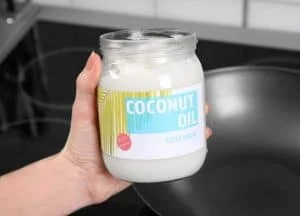Coconut oil has become a staple in many kitchens and beauty routines due to its numerous health benefits. But what happens when you have an excess amount of coconut oil and want to store it for later use? Can you freeze coconut oil? In this article, we will explore the topic of freezing coconut oil and provide you with all the information you need to know.
Why Would You Want to Freeze Coconut Oil?
Before we dive into the details of freezing coconut oil, let’s first understand why you might want to freeze it in the first place. Here are a few reasons:
- Preservation: Freezing coconut oil can help extend its shelf life and prevent it from going rancid.
- Convenience: Freezing coconut oil allows you to have it readily available whenever you need it, without worrying about it spoiling.
- Portion Control: Freezing coconut oil in smaller portions can make it easier to measure and use in recipes.
How to Freeze Coconut Oil
Freezing coconut oil is a simple process that requires minimal effort. Here’s how you can do it:
- Choose the Right Container: Opt for an airtight container or freezer-safe bag to store the coconut oil. Make sure it is clean and dry before use.
- Scoop or Pour: If your coconut oil is solid at room temperature, you can simply scoop it into the container. If it’s in liquid form, pour it into the container, leaving some space at the top for expansion.
- Seal and Label: Seal the container tightly to prevent any air or moisture from entering. Don’t forget to label it with the date of freezing.
- Freeze: Place the container in the freezer and let it freeze for at least a few hours or until solid.
Thawing Frozen Coconut Oil
When you’re ready to use the frozen coconut oil, you’ll need to thaw it first. Here are a few methods you can use:
- Room Temperature: Simply leave the container at room temperature for a few hours until the coconut oil softens.
- Warm Water Bath: Place the sealed container in a bowl of warm water for a quicker thawing process. Avoid using hot water as it may cause the oil to melt unevenly.
- Microwave: If you’re in a hurry, you can use the defrost setting on your microwave to thaw the coconut oil. However, be cautious and check it frequently to prevent overheating.

FAQs on Can You Freeze Coconut Oil
Q: Can you freeze coconut oil in its original container?
A: It is not recommended to freeze coconut oil in its original container, especially if it’s made of glass. Glass containers may crack or shatter when exposed to extreme temperatures. It’s best to transfer the coconut oil to a freezer-safe container before freezing.
Q: How long can you freeze the oil?
A: When stored properly in an airtight container, frozen coconut oil can last for up to two years. However, for the best quality, it is recommended to use it within six to eight months.
Q: Can you freeze coconut oil for skincare purposes?
A: Yes, you can freeze the oil for skincare purposes. Freezing can help preserve its beneficial properties and provide a refreshing sensation when applied to the skin.
Q: Can you freeze flavored coconut oil?
A: Flavored coconut oil, such as garlic or chili-infused oil, can be frozen. However, keep in mind that the flavor may intensify or change slightly after freezing.
Q: Can you freeze coconut oil mixed with other ingredients?
A: If you have a mixture of coconut oil and other ingredients, such as herbs or spices, it is best to freeze them separately. This allows you to thaw and use the coconut oil as needed without affecting the other ingredients.
Conclusion
In conclusion, freezing coconut oil is a great way to preserve its freshness and extend its shelf life. By following the simple steps mentioned above, you can easily freeze and thaw coconut oil whenever you need it. So go ahead and stock up on this versatile oil without worrying about it going to waste!
Fun Fact: Did you know that coconut oil can be used as a natural sunscreen with an SPF of around 4-6? While it may not provide the same level of protection as commercial sunscreens, it can offer some sun protection when applied topically.
Originally posted 2023-04-23 20:24:09.

